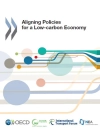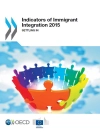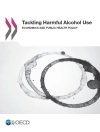This book considers how emerging economies around the world face the challenge of building good institutions and effective governance, since so much of economic development depends on having these in place. The promotion of shared prosperity and the battle against poverty require interventions to reach out to the poor and the disadvantaged. Yet time and again we have seen such effort foild or diminished by corruption and leakage.
The creation of good governance and institutions and structures to combat corruption require determination and passion but also intricate design rooted in data, analysis, and research. In this book, leading researchers from around the world bring to the table some of the best available ideas to help create better governance structures, design laws for corruption control, and nurture good institutions.
表中的内容
1. Introduction.- 2. Anti-Corruption Institutions: Some History and Theory.- 3. Corruption as a Political Phenomenon.- 4.Corruption, Organized Crime, and Money Laundering.- 5. Reflections on Corruption in the Context of Political and Economic Liberalization.- 6. Why is Italy Disproportionally Corrupt? A Conjecture.- 7. Cohesive Institutions and the Distribution of Political Rents.- 8. If Politics Is the Problem, How Can External Actors Be Part of the Solution?.- 9. Fighting Political Corruption: Evidence from Brazil.- 10. What Drives Citizen Perceptions of Government Corruption? National Income, Petty Bribe Payments and the Unknown.- 10. What Drives Citizen Perceptions of Government Corruption? National Income, Petty Bribe Payments and the Unknown.- 11. Doing the Survey Two-Step: The Effects of Reticence on Estimates of Corruption in Two-Stage Survey Questions.
关于作者
Kaushik Basu is Professor of Economics and holds the C. Marks Chair at Cornell University, New York, USA; and former Chief Economist of the World Bank, 2012-16, and Chief Economic Adviser to the Government of India, 2009-12.
Tito Cordella is adviser in the World Bank Development Economics Group, Washington DC, USA.












